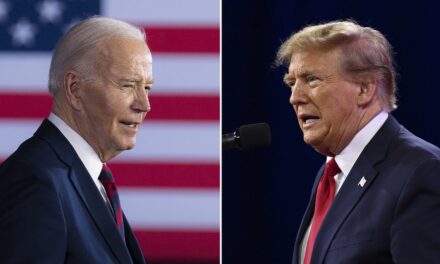The Washington Post’s Opinions section is in a state of anticipation as it braces for the arrival of a new leader, following the unexpected ousting of David Shipley. This change comes in the wake of owner Jeff Bezos’s growing influence in the editorial direction of the publication. Under Shipley, the Opinions section aimed to foster a diverse range of viewpoints but has increasingly found itself at the crossroads of Bezos’s editorial ambitions.
David Shipley’s exit marks a notable shift in the management of one of the most influential sections of the newspaper, which plays a crucial role in shaping public discourse on a myriad of important issues. The Opinions section houses a variety of columns, editorials, and op-eds that provide a platform for both established and emerging voices. With Shipley no longer at the helm, questions arise about the future direction and leadership style that will take root in the department.
Shipley, who has held various editorial roles within the newspaper since 2014 and became the Opinions editor in 2018, developed a unique reputation during his tenure. His initiatives sought to enhance reader engagement and diversify perspectives, striving to balance traditional journalism with the demands of a rapidly shifting media landscape. Observers who followed his work noted that he was often willing to take risks by featuring contentious or unpopular views in an effort to enrich the public discourse.
Yet with Bezos’s intense scrutiny over the content and direction of the organization, including a particular focus on the Opinions section, Shipley faced an uphill battle in steering the department through turbulent waters. The tech magnate’s involvement has been seen as a double-edged sword. On one hand, Bezos’s backing can open new avenues for innovation and audience engagement; on the other hand, it raises concerns about autonomy and the independence of the newsroom.
The departure of Shipley has not only sent shockwaves through the Opinions section but has also sparked conversations among staff and media analysts about what might come next. Candidates already speculated to step in vary widely in tone and approach, leaving many on the edge about how the new leader will shape the editorial vision moving forward.
Some believe that the next editor might undertake a more aggressive approach in curating contributions, tailoring opinions to attract a broader readership amid declining subscriptions. Others hope that the new leader will build upon Shipley’s commitment to diversity and inclusion, maintaining a platform for a wide range of perspectives that reflect the complex fabric of society.
As the search for Shipley’s successor unfolds, it is clear that the new leader will have to navigate the intricate dynamics of the modern media landscape. The role of the Opinions editor is more challenging than ever, demanding not only a strong editorial voice but also a keen understanding of contemporary audience engagement strategies. Balancing journalistic integrity while catering to reader expectations will be paramount in the coming months.
In the current media environment, opinion journalism has become both increasingly relevant and fiercely contested. With misinformation rampant and polarized views dominating public discourse, the Opinions section has a significant responsibility to provide clarity and context. The next editor must be adept at curating content that challenges the status quo, encourages critical thinking, and fosters dialogue among readers.
The aftermath of Shipley’s era presents an opportunity for revitalization and relevance. Observers hope that whoever steps into this leadership role will not shy away from the complexities and nuances involved in producing opinion-based content. This individual must also grapple with the broader implications of the platform’s influence and work towards boosting public trust in media.
Additionally, the implications of Bezos’s leadership decisions extend beyond just the Opinions section. His vision for The Washington Post as a multifaceted digital platform uniquely positions it within a highly competitive media landscape. This strategy likely includes not just opinion journalism but also investigative reporting, lifestyle coverage, and more, all aiming to resonate with a more extensive and diverse audience.
While many members of the editorial staff regard Shipley with respect for his vision and contributions, his exit could pave the way for a new era of innovation, albeit with challenges that come with great transitions. The attention now turns to how the new leadership, under Bezos’s overarching influence, will navigate this complicated terrain and what strategies they will implement to not only retain existing readers but also attract new ones to the platform.
As the Washington Post eyes the future, it faces an essential crossroads. The next Opinions editor will not only inherit the challenges that come with such a notable section but will also be poised to influence the national conversation on key social and political issues. In an evolving media landscape defined by digital engagement, it will be crucial for the incoming leader to exhibit adaptability and creativity.
The anticipation surrounding who will take over as the new leader inevitably reflects a larger narrative about the changing landscape of journalism itself. It raises vital questions about editorial freedom, diversity in perspective, and the role of ownership in shaping public discourse. The transition period may hold some uncertainty, but it also brings an opportunity for renewal and rethinking what opinion journalism can achieve.
Ultimately, the critical role of the Opinions section is to spark conversation and challenge ideas, fostering a culture of thoughtful discourse. As the Washington Post seeks a new leader, both staff and readers will be watching closely to see how the upcoming editorial shift will reflect and respond to the pressing issues of the day. The world of opinion journalism at the Washington Post stands at a pivotal moment, filled with both challenges and possibilities.
In summary, the Washington Post’s Opinions section is set to undergo a critical transition following the departure of David Shipley. As the hunt for his replacement continues, there are high expectations for how the new leader will navigate the complexities of modern opinion journalism under the influence of Jeff Bezos. The outcome of this leadership change could ultimately shape the future of how the Opinions section engages with readers, addresses contemporary issues, and influences the public debate.
































